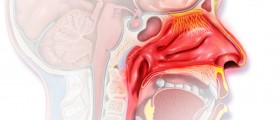
Immune system has an ability to sustain the influence of allergens,but if this ability is hampered, it may lead to allergies. Foreign bodies alwaystry to penetrate the human body and cause problems, but the immune system is the onethat protects us from this invasion. There are many harmful foreign bodiessuch as parasites, viruses and bacteria and the immune system fights them of byreleasing antibodies that eliminate them. Still, allergic reactions can happenif the immune system reacts to the molds, some foods, dust, pollen and otherharmful substances. They can find their way through the nose and develop eyeredness, nasal itching, mucus discharge, swelling, nasal congestion andsneezing.
Medications
Medications like antihistamines, steroids and decongestants are commonly usedfor treating nasal allergy. They can be relievers and just decrease the symptom’sstrength, or controllers, which fight the cause of the problem. Relievers aremedications like decongestants, while steroids and antihistamines are controllers.
Antihistamines
When a body is having an allergic reaction, the immune system produces a chemicalcalled histamine, and antihistamines work by preventing the connection betweenthe histamine receptors located in cell surfaces and histamines. Human body hasthree types of histamine receptors and they are H1, H2 and H3. The symptoms ofallergic reaction we have mentioned earlier, such as runny nose, itching andsneezing, are created when this connection is made, most commonly with H1receptor. But these medications used to cause reduced mental awareness anddrowsiness earlier, although they have evolved in the meantime and now they cause less sleepiness and theyact slower.
Steroids
Adrenalin glands manufacture steroids and some of them are very successful in the treatment of allergic reaction due to their anti-inflammatory abilities. Theyare corticosteroids and they are very effective when combating noseinflammation. A combined use of nasal steroids and antihistamines is verysuccessful in treating nasal congestion, but side effects like nasal crust andnasal bleeding can be developed due to their long lasting use. It canlead to additional problems such as increased infection susceptibility,cataract and blood thinning.
Decongestants
Nasal allergy causes nasal congestion, which can be treated with the help of decongestants. The allergic reaction causes the blood vessels to broaden up andthis makes way for increased fluid outflow. Congestion is created when thishappens along with the nasal swelling membrane. Stiffness, or nasal congestion,can be eliminated by decreasing the fluid flow of the blood vessels and bymaking them shrink in size, which is what decongestants do. This opens up thenasal passage and brings relief. There are some side effects possible, likenose dryness and burning sensation, but they are connected with the overuse. Reboundnasal congestion can also happen if these medications are in use for severaldays constantly. Irritability, appetite loss, insomnia, nervousness andpalpitations are some of the side effects of oral decongestants.






-Help-Treat-Your-Cold-Or-Flu_f_280x120.jpg)





_f_280x120.jpg)




Your thoughts on this
Loading...